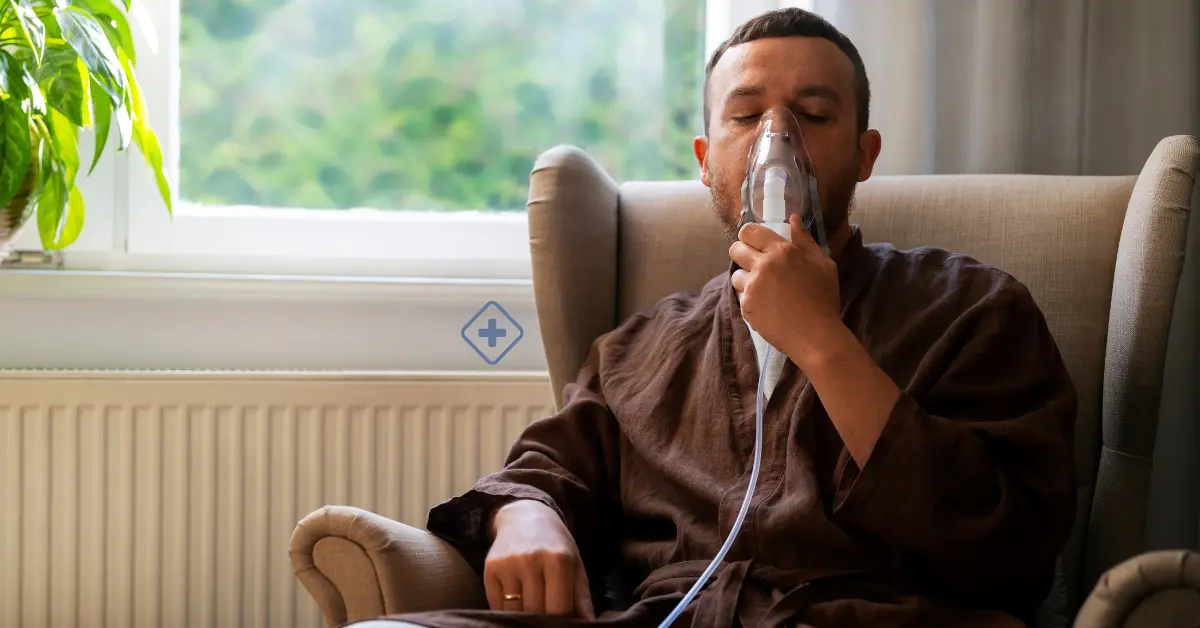
Do you always feel tired? Be alert of your health!
Lack of sleep, poor diet, stress, medical conditions, and a sedentary lifestyle contribute to fatigue

You look at the clock, it's barely noon, and you realize you've already lost the count of the cups of coffee you've had, and yet you still feel that your energy is not enough. You feel that no matter how much you slept the night before, there's no way you can have energy all day long, stay active, and not get heavy? Well, if so, this article may contain the perfect explanation for you.
Yawning becomes a gesture that is already part of your day-to-day life. Although you may have already noticed the ravages of tiredness and fatigue gradually perhaps in your dark circles, in your facial expression or in the pile of accumulated pendants on your desk... other indicators are not precisely visible, but that requires special attention.
Although fatigue is a symptom shared by several diseases and medical conditions, in most cases, it's merely a reflection of the lifestyle we're leading. However, in any case, it is essential to identify the reasons for fatigue.
The most common symptoms
-
Not getting enough quality sleep: Even though not getting enough sleep is one of the most obvious causes of fatigue, it is still one of the most common factors. Getting less than the recommended amount of sleep each night will not only make you feel tired the next day, but it also has adverse health consequences.
On average, an adult should get seven hours of sleep for optimal health. While we sleep, our body releases hormones that regulate metabolism and energy levels, so it is important that our sleep is interrupted to allow the brain to go through the five stages of each sleep cycle.
Proper, quality sleep will make you feel alert and energized the next day.
-
Leading a sedentary lifestyle: Although we relate that lying down to rest if we feel tired may be the answer, the truth is that getting up and moving can be the best option to eliminate fatigue.
If you haven't exercised for a long time, start slowly. You can start with 10-minute walks a day and build up to a 30-minute exercise routine, 5 days a week. Start by substituting those day-to-day decisions that kept you sedentary. Take the stairs instead of the elevator, opting to walk instead of driving very short distances.
-
Inadequate Hydration: Hydration plays a significant role in our energy levels. Due to the large number of biochemical reactions that occur within our body daily, there is a natural loss of fluids that must be replaced.
Drink enough water to maintain your hydration levels positively.
-
High levels of stress: although it is almost impossible for all of us to avoid feeling stressed at least once in a lifetime. It is even a natural reaction of our body to certain situations, but when excessive levels of stress are closely linked to fatigue.
The list of possible stress triggers is endless: moving, unemployment, loss of a loved one, problems at work, financial or relationship problems, etc. While it is true that we cannot avoid these situations, we can learn to develop strategies to manage stress in the best way.
Excessive and prolonged stress causes the body to generate chemicals to protect itself, which in excess causes us physical and emotional exhaustion and even health damage.
-
A poor diet: Making adjustments in your eating habits can be the quickest solution to fatigue. Eating a healthy, balanced diet with a mix of the five food groups - fruits, vegetables, grains, protein, and dairy - can make a big difference in your fatigue.
-
Eat the right amount of calories for you. Eating too few or too many calories can make you feel much slower
-
Reduce your sugar intake. Sugar will make you feel good for a few moments, but then it will only make you feel even more tired.
-
Never skip breakfast. Doing so may cause you to lose the energy you need to start your day off right.
-
Inadequate protein intake also contributes to fatigue.
-
Diseases and medical conditions: If, after implementing changes in all of the above, your fatigue and tiredness are still present all the time, there may be a medical condition that is causing it.
Some of the most common medical conditions that share fatigue as a significant symptom are: -
Anemia
-
Depression
-
Anxiety
-
Chronic Fatigue Syndrome
-
Diabetes
-
Underactive Thyroid
-
Urinary Tract Infection
-
Heart Disease
-
Food Intolerance
-
Pregnancy
Talk to your doctor about your situation to rule out or diagnose a medical condition early.
The good news is that most of the time, making changes in the way we live can optimize energy levels until the fatigue disappears and improve the overall quality of life.
You look at the clock, it's barely noon, and you realize you've already lost the count of the cups of coffee you've had, and yet you still feel that your energy is not enough. You feel that no matter how much you slept the night before, there's no way you can have energy all day long, stay active, and not get heavy? Well, if so, this article may contain the perfect explanation for you.
Yawning becomes a gesture that is already part of your day-to-day life. Although you may have already noticed the ravages of tiredness and fatigue gradually, perhaps in your dark circles, in your facial expression, or the pile of accumulated pendants on your desk... other indicators are not precisely visible, but that requires special attention.
Although fatigue is a symptom shared by several diseases and medical conditions, in most cases, it's merely a reflection of the lifestyle we're leading. However, in any case, it is essential to identify the reasons for fatigue.
The most common symptoms
-
Not getting enough sleep: Even though not getting enough sleep is one of the most obvious causes of fatigue, it is still one of the most common factors. Getting less than the recommended amount of sleep each night will not only make you feel tired the next day, but it also has adverse health consequences.
On average, an adult should get seven hours of sleep for optimal health. While we sleep, our body releases hormones that regulate metabolism and energy levels, so our sleep must be interrupted to allow the brain to go through the five stages of each sleep cycle.
Proper, quality sleep will make you feel alert and energized the next day.
-
Leading a sedentary lifestyle: Although we relate that lying down to rest if we feel tired may be the answer, the truth is that getting up and moving can be the best option to eliminate fatigue.
If you haven't exercised for a long time, start slowly. You can start with 10-minute walks a day and build up to a 30-minute exercise routine, 5 days a week. Start by substituting those day-to-day decisions that kept you sedentary. Take the stairs instead of the elevator, opting to walk instead of driving very short distances.
-
Inadequate Hydration: Hydration plays a significant role in our energy levels. Due to many biochemical reactions within our body daily, there is a natural loss of fluids that must be replaced.
Drink enough water to maintain your hydration levels positively.
-
High levels of stress: although it is almost impossible for all of us to avoid feeling stressed at least once in a lifetime. It is even a natural reaction of our body to certain situations, but excessive stress levels are closely linked to fatigue.
The list of possible stress triggers is endless: moving, unemployment, loss of a loved one, problems at work, financial or relationship problems, etc. While it is true that we cannot avoid these situations, we can learn to develop strategies to manage stress in the best way.
Excessive and prolonged stress causes the body to generate chemicals to protect itself, which in excess causes us physical and emotional exhaustion and even health damage.
-
A poor diet: Making adjustments in your eating habits can be the quickest solution to fatigue. Eating a healthy, balanced diet with a mix of the five food groups - fruits, vegetables, grains, protein, and dairy - can make a big difference in your fatigue.
-
Eat the right amount of calories for you. Eating too few or too many calories can make you feel much slower.
-
Reduce your sugar intake. Sugar will make you feel good for a few moments, but then it will only make you feel even more tired.
-
Never skip breakfast. Doing so may cause you to lose the energy you need to start your day off right.
-
Inadequate protein intake also contributes to fatigue.
-
Diseases and medical conditions: If, after implementing changes in all of the above, your fatigue and tiredness are still present all the time, there may be a medical condition that is causing it.
Some of the most common medical conditions that share fatigue as a significant symptom are:
-
Anemia
-
Depression
-
Anxiety
-
Chronic Fatigue Syndrome
-
Diabetes
-
Underactive Thyroid
-
Urinary Tract Infection
-
Heart Disease
-
Food Intolerance
-
Pregnancy
Talk to your doctor about your situation to rule out or diagnose a medical condition early.
The good news is that making changes in the way we live can optimize energy levels until the fatigue disappears and improve the overall quality of life.
BlueNetHospitals - Hospital Los Cabos
BlueNet Hospitals.
Trending Topics
Internal Medicine
Trending Topics
Septoplasty
Septoplasty is a highly effective procedure for correcting a deviated septum
Ulcerative Colitis
Ulcerative colitis is an inflammatory bowel disease (IBD) that causes chronic inflammation.
Prostate-Specific Antigen (PSA)
The level of PSA in the blood can provide valuable information about prostate health.
Emphysema
Emphysema symptoms can be subtle at first but tend to worsen over time.
Health Library
Internal Medicine
Aprender Más Acerca De:
- ¿Necesitas una cita con un Especialista?
- llámanos
- escríbenos
- Conéctate










